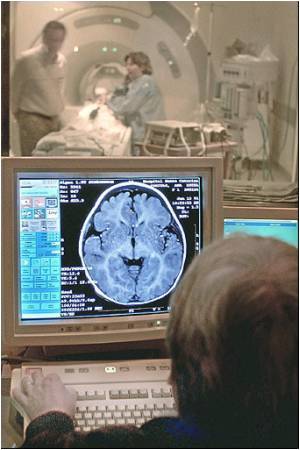
In the past 15 years, as molecular mechanisms underlying the treatment of bipolar disorder began to emerge, basic research studies conducted in animals began to identify neuroprotective and perhaps neurotrophic effects of this important medication.
The identification of these molecular actions of lithium coincided with the discovery of regional brain volume deficits in imaging studies of people with bipolar disorder. In particular, a generation of research studies identified alterations, predominately reductions, in the size of brain regions involved in mood regulation. These studies also began to provide hints that some of the treatments for bipolar disorder would increase the volumes of these brain regions.
In a massive research effort published in Biological Psychiatry, eleven international research groups collaborated to pool brain imaging data from adults with bipolar disorder. This allowed them to perform a mega-analysis to evaluate the differences in brain structure between individuals with bipolar disorder and healthy comparison subjects.
They found that individuals with bipolar disorder had increased right lateral ventricular, left temporal lobe, and right putamen volumes. Individuals with bipolar disorder who were not taking lithium had a reduction in cerebral and hippocampal volumes compared with healthy comparison subjects. Importantly, however, bipolar patients taking lithium displayed significantly increased hippocampal and amygdala volume compared with patients not treated with lithium and healthy comparison subjects. Cerebral volume reduction was also significantly associated with illness duration in bipolar individuals.
"This important mega-analysis provides strong support for regional brain structural alterations associated with bipolar disorder, but also sends a signal of hope that treatments for this disorder may reduce some of these deficits," commented Dr. John Krystal, Editor of Biological Psychiatry.
Advertisement
Source-Eurekalert












